Surface is Project Origami's revenge
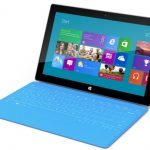
Surface isn't just about the future. The tablet is also about the past, and Microsoft bringing to market a vision quashed by its hardware partners. In 2012, Surface is all about Apple and Microsoft securing a fast foothold in the emerging cloud-connected device category. But the tablet also encompasses something sought six years ago: Project Origami.
It's no coincidence that Project Origami's launch was, until yesterday, the last time Microsoft held a super-secretive media event that generated big buzz. Surface and the other share much in common, and not just buzz. Before there was iPad, Microsoft developed Ultra-Mobile PC -- or what Project Origami came to be branded. The idea: To bring to market a sub-$500 touchscreen computer. The software giant sought this product category four years before iPad stormed the media tablet market. Surface is Project Origami's revenge, against Apple and Microsoft's hardware partners.
Should Microsoft release a branded tablet?
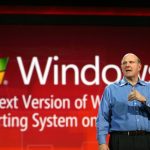
It's Microsoft mystery Monday, with some big announcement coming at 6:30 pm EDT. The current rumors all focus on tablets, with the most recent being a partnership with Barnes & Noble. Can you say Windows Nook? (However, after I posted, Barnes & Noble issued a non-participation statement).
There's a broader question: Should Microsoft release a branded tablet? I pose that to you on this fine day. I'm certainly perplexed. The big advantage to such an announcement is timing. Google is expected to debut its own branded Galaxy Nexus tablet at the I/O developer conference next week. Microsoft could steal Google's thunder by doing something first. But would it be, with Windows 8 still in development? Now it would be big if Microsoft said Windows RT is ready now and this tablet , whether made by Barnes & Noble or somebody else, ships imminently. Otherwise, why bother announce June 18, when OEM partners showed off Windows RT models earlier this month at Computex?
Windows 8 is like a bad blind date

She's stunning, sexy and sultry. But you can't live with her.
Every day for the last three weeks, I sat down to write this analysis but couldn't bring myself to. I resisted for not having used Windows 8 as much as its predecessors -- typically from public beta to release candidate before offering hard opinion. In October, I requested one of the Samsung tablets handed out to BUILD attendees but Microsoft wouldn't provide one. After several more requests, I got one in April and May for about a month's use and was shocked -- and not "wow, it's good". Windows 8 demos much better than my actual user experience. I blamed myself. Surely the problem is mine -- that Microsoft wouldn't unleash UX worse than Windows Vista. But as I see other users/reviewers sharing similar experience, time has come to break my silence. I wouldn't recommend Windows 8, in its current form, to anyone.
IDC will finally count Windows tablets with iPads and Androids

Hopefully, Gartner and other analyst firms will show as much sense.
Windows tablets have gotten the shaft from IDC and other analyst firms for far too long. They count the devices as PCs, not tablets. Last year, after Gartner's tablet forecast failed to include Windows, several prominent bloggers fanned the flames of misinformation, wrongly concluding Microsoft's OS would have no share by 2015. Today, IDC issued a new forecast that still ignores Windows tablets, but changes are promised.
Today Apple and Microsoft write Android's epitaph

As I compose this post, Microsoft's TechEd keynote is underway, while Apple will kick off Worldwide Developer Conference in just a few hours. Both events will put forth very different views of the cloud-connected device future, which Gartner says will start as soon as 2014, when the cloud replaces the PC as everyone's personal digital hub.
For Apple, iOS 6 will be center stage, whetting consumers' appetites and giving them another weapon in their bring-your-own-device assault on workplace IT. Meanwhile, Microsoft pitches new wares for the enterprise -- Office, Windows 8, RT and Server, for starters. Where the two companies meet is the tablet, and there's no room between them for Android.
Toshiba teases two Windows RT devices, but has nothing to show

Toshiba USA on Tuesday announced a small selection of next-generation Windows machines, including a new ultrabook in the Satellite family, a convertible Windows 8 notebook designed in conjunction with Intel, and pair of mobile devices running Windows RT.
Unlike Asus, who yesterday presented mostly finished preproduction prototypes of its first Windows RT device, Toshiba did not show off much in the way of RT hardware. Instead, the company presented a loose roadmap for device availability.
The two devices Toshiba announced on Tuesday are being designed in conjunction with Texas Instruments, and will be powered by multi-core TI OMAP systems on a chip. One will be a touchscreen clamshell PC, and one will be a mobile tablet with keyboard dock similar to the Asus Tablet 600.
Shut up and take my money: The first Windows RT device for consumers
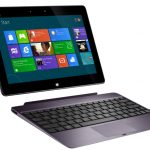
Late last year, I got pretty excited about the Asus Eee Pad Transformer Prime Android tablet. The tablet/notebook form factor spoke to me, the specs were impressive, and the overall package looked just right for an individual looking to do more working than playing.
Asus has revisited the appealling form factor of the Transformer Prime and applied it to Windows RT, the version of Windows 8 specifically for devices running on ARM-based processors.
Techies, June will be the most amazing month EVER

Save your greenbacks now. During these thirty days you'll hear about lots of innovative and imitative products coming for the holidays. There's no coal in Santa's stocking this year, just too much tech to fit your gift list.
Not since the late 1990s, when seemingly every day some vendor announced a new PC that was ever-so-better than the one you bought the week before, is there so much new tech coming so close together. The cloud connected-device era ushers in a storm of tech. Save up now so you don't break the bank account or exceed credit card limits later.
Unfair maybe, but Microsoft has the right to bar browsers from Windows RT
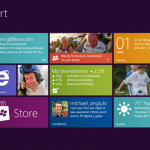
Suddenly, the new Microsoft doesn't look all that different from the old one. During court proceedings for the 1998-2001 antitrust trial, government lawyers accused Microsoft of playing favorites by providing its developers access to information not available to third parties -- thus giving Internet Explorer unfair competitive advantage over Netscape. The company's browser policy regarding Windows RT isn't just much the same, it's much more. IE gets hugely exclusive access. The question: Is it anticompetitive?
The answer isn't as simple as some people might think. For example, look at Apple. Is it anticompetitive that the company effectively bars competing browsers from iOS? It's a Safari-only platform, lest browser developers work by proxy, like Opera does. Windows has an acquired monopoly on Intel-based PCs. Apple imposes one in part, by controlling everything on its platform, which is exclusive to its own hardware. Something else to ponder: Microsoft doesn't have a monopoly on ARM as it does on x86. There's no position of market dominance to exert anticompetitive behavior, as could be defined under US antitrust law. Microsoft is within its rights to shut out Chrome, Firefox and other browsers while favoring Internet Explorer. But that doesn't make it right.
Microsoft enterprise licensing changes favor Windows RT, put Android and iOS in their place

If you can't beat them, manage them. It's a strategy that has worked well for Microsoft in the past, and it is emerging as a key element in announcements last week about how Microsoft will license Windows 8 in all its variations, including the x86 consumer, Professional and Enterprise editions, the embedded Windows RT and the cloud-based Windows Intune.
While Microsoft's primary goal is to stop Apple's growth in the enterprise, which it will do by tilting licensing policies in favor of Windows tablets, the company has a Plan B that will help monetize Apple and Android devices in the enterprise through management.
Microsoft Q3 2012 by the numbers: $17B revenue, 60 cents EPS

Late this afternoon, after the closing bell, Microsoft revealed results for one of its most uncertain quarters in years. That's because Gartner and IDC report tepid PC shipments and Microsoft prepares to launch a horde of new products later this year, including new versions of Office, Windows and Windows Server, among others. Sometimes sales sag in the quarter or two before new product releases -- and for 2012 there are many core ones coming.
"With the upcoming release of new Windows 8 PCs and tablets, the next version of Office, and a wide array of products and services for the enterprise and consumers, we will be delivering exceptional value to all our customers in the year ahead", Microsoft CEO Steve Ballmer says.
I applaud Windows 8 versions because I remember pure XP
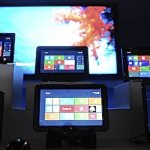
I certainly hadn't planned on responding to a story written in 2003 today. But, hey, the Internet's memory is better than an elephant's -- and I've been called to task for "forgetting". Most certainly I did not forget. Circumstances changed.
Yesterday, while waiting for my 90 year-old father-in-law at the optometrist, I got out my smartphone and started scanning Tumblr posts. One led to a Time magazine story about the "Hug Me Coke Machine", which I Tumblred hours late. While at Time's site, I spied something else: "Windows 8 Versions: The News Is Mostly Good" by Harry McCracken. He referred back to my old CNET story "Windows faces new competition: Itself", about fragmenting versions, and contrasted it against my more recent musings for BetaNews. Thanks for remembering, Harry.
Three Windows 8 editions is just right
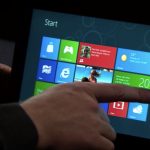
Common sense has returned to Windows product marketing. After rumors of nine Windows 8 editions sent me into near cardiac arrest last month, Microsoft instead has gone back to basics. The new operating system will come in just two editions for x86 processors -- Windows 8 and 8 Pro. If you're running Windows XP today, as most people still are, these two will be familiar to you, right down to the major differences between them, being similar to Home and Professional Editions. The third, Windows RT, is for devices running ARM processors, and, as Microsoft previously disclosed, will only be available on new hardware. You can install Windows 8 or Pro on your PC, but RT comes preloaded.
Hot damn! There's seriously fresh thinking going on over at the Windows & Windows Live division. Someone pinch me and pray tell I'm not dreaming. The only thing better than this would be lower pricing, which, admittedly, I'm not hopeful for. But one can dream within the dream!
Don't cry for me, Steve Ballmer

But I'll shed a tear for you and remember the good times we had together.
That's because IDC asserts, despite exciting Windows 8's coming launch, that the PC era will be over by 2016. Gartner uses a different metric to arrive at 2014. But whatever the measure, the Windows era is over, too, as (gulp) Android becomes the most widely shipped operating system on the planet. I guess you were right to obsess about Google after all. Cripes! As long ago as 2003, wasn't it? Who could have imagined that it would really come to this? You weren't being paranoid at all.
Will Windows 8 save Christmas?

PC shipments slogged along during 2011 and will continue to do so this year. IDC says growth was a paltry 1.8 percent last year and will be a tepid 5 percent in 2012 -- tepid considering the year-over-year comparison is weak. Bob O'Donnell, IDC's veep of Clients and Displays at IDC cites the oh-so obvious reason: "Many consumers are holding off making PC purchases at the moment because tablet devices like Apple's iPad are proving to be a powerful distraction".
But he qualifies: "End user surveys tell us that few people consider media tablets as replacements for their PCs, so later this year when there is a new Microsoft operating system, available in sleek new PC form factors, we believe consumer interest in PCs will begin to rebound". Do you believe him? Pardon my skepticism. I don't.
© 1998-2025 BetaNews, Inc. All Rights Reserved. About Us - Privacy Policy - Cookie Policy - Sitemap.